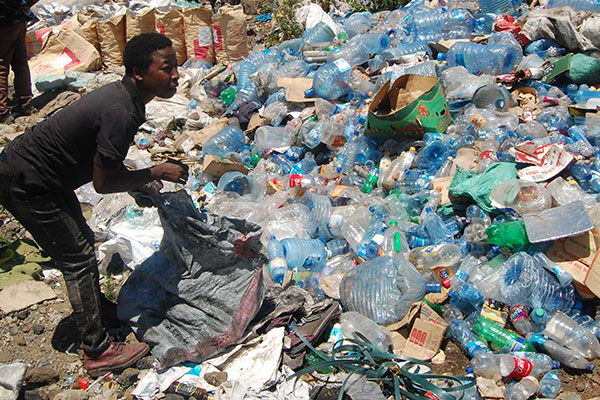Nakuru County Government in partnership with the National Environment Management Authority (NEMA) is working out strategies to establish modern Electronic-Waste (E-waste) collection and management centres to avert adverse effects of disused electronic equipment on the environment and also on human health.
County Executive Committee Member (CECM) in Charge of Water, Environment, Energy, Natural Resources and Climate Change Dr Nelson Maara said the centres, whose establishment would be funded by the World Bank and be accessible to the general public, were expected to connect the collectors to the global markets and provide a fair and transparent price to ensure they get the maximum value for the waste.
Dr Maara said research showed that waste from disused electronic equipment like mobile phones and TVs was becoming a major threat to human health adding that the centres would ensure the environment remained clean in addition to creating a sustainable livelihood for the locals.
While noting that proper waste management was one way of attracting investors, Dr Maara indicated that cheaper imports and increasing number of higher learning institutions, all equipped with electronics, were some of the factors contributing to huge chunks of E-waste in Kenya.
While accepting that it has been a challenge convincing people to separate household waste from electronic waste, Dr Maara said the centres would serve as convenient drop-off points for E-waste while ensuring proper disposal and minimizing its impact on the environment.
“The quantity of E-waste in tonnes cannot be ignored. As a County, we are committed to averting adverse environmental and health impacts posed by this waste. E-waste poses a serious hazard to human health and the environment when dumped in landfills or improperly recycled,” stated the CECM
Dr. Maara who spoke after holding a meeting with officials of NEMA said that in Africa, E-waste recycling was being performed by the informal and unorganized sector that uses improper techniques such as burning to recover metals, a process he noted emits toxic fumes.
Dr Maara observed that in the face of climate change, only a few companies in Kenya have had sustainable ways to handle e-waste. He added that making repairs, finding a reputable recycling company, donating older products and cutting down on purchases were just a few ways that businesses could manage their e-waste problem.
The CECM noted that though around the globe E-waste accounts for only two per cent of debris in landfills, it contributes two-thirds of heavy metal toxins, making it one of the main contributors to toxic leaching. These metals, he added, break down in the soil, emitting dangerous gases harmful to humans and the environment.
E-Waste has grown over the years as consumers discard obsolete products with the launch of more sophisticated ones. The disposed electronics in most cases contain hazardous substances.
The National Environment Management Authority (NEMA) describes e-waste as “discarded electrical or electronic devices or appliances that have ceased to be of any value to their owners.
According to NEMA, Kenya churns out 11,400 tonnes of old refrigerators, 2,800 tonnes of TVs, 2,500 tonnes of personal computers, 500 tonnes of printers and 150 tonnes of mobile phones every year.
According to the Global E-Waste Monitor Report, e-waste will reach 74 metric tonnes by 2030, making it the world’s fastest-growing domestic waste stream, fuelled mainly by higher consumption rates of electric and electronic equipment, short life cycles, and few options for repair.
Electronic waste, made up of disused computers, televisions, VCRs, stereos, copiers, fax machines and mobile phones, has become one of the fastest-growing segments of Kenya’s total refuse, according to NEMA.
Concern is growing that failure to manage this waste is exposing Kenya to long-term and costly environmental damage whose impact will be felt in the emergence of new diseases, change in weather patterns and food insecurity all of which will take many decades to reverse.
In the absence of proper means of disposal, most Kenyans have resorted to burning as their preferred method of disposing of electronic waste increasing their danger to the environment.
Incinerating discarded electronic gadgets merely releases harmful metals into the ground and the atmosphere because the metals cannot completely decompose even with exposure to fire.
By Esther Mwangi and Merceline Khaemba





